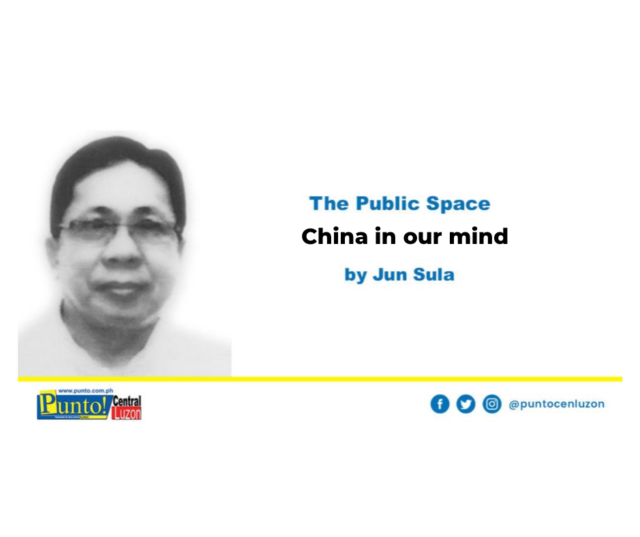The great Chinese helmsman Mao Tse Tung once said that there would come time when for every three persons in the world, one would be a Chinese.
He didn’t mean one third of the world population would be all in China when that time comes. The one-child policy, which was recently relaxed as a national policy, was meant to address the Chinese prolific nature early on.
Regardless of geography, Mao’s astute prophecy might already be a work in progress, with alarm bells being sounded in many parts of the globe of more aggressive Chinese activities, economic and military.
The Philippines is, obviously, one of them.
Of late, at least three senators have pushed the alarm button about the increasing number of Chinese, whether as tourists or as foreign residents, in the country.
Sen. Francis Pangilinan likened the Chinese influx, legal and illegal, in the country as “soft invasion”. Sen. Richard Gordon is wary of possible espionage already at work.
These are reasonable concerns, especially in the context of China’s hegemonic rise in Asia, let alone in the world.
The territorial dispute in the West Philippine Sea or the South China Sea remains the biggest threat to Philippine security. Despite the country’s winning the arbitral award claim over it, China is defiant of the international ruling and pursues at its own pace the unbridled militarization of the area.
With nearly 30,000 35-year old Chinese nationals retiring here, Gordon smells something fishy. They might as well be soldiers on a mission, which may not be purely business or pleasure in nature. Gordon thinks espionage is a real possibility.
Gordon must have read Sun Tzu. “An army without secret agents,” he said, “is like a man without eyes or ears”.
Over the last three years or so in the current dispensation, about five million Chinese tourists have arrived the Philippines, many of them under the Visa Upon Arrival system. The scheme has given rise to the so-called “pastillas” scheme, estimated to have bilked/milked Chinese tourists from 20 to 40 billion pesos.
Who’s the mastermind of the scheme is the subject of current Senate investigation at the moment. The downside is that this might end up like other previous probes of alleged massive corruption in government agencies, cherry picking who the guilty parties are.
The pogos are still around, although declining in number, according to official reports, mainly because of the pandemic and not because of some legitimate security concerns and government restrictions.
Whether these gambling firms, which are considered illegal in China, have been faithfully paying their tax dues to the Philippine government is as fuzzy as their operations in the country are.
And then, there was the issue of allowing Chinese owned telco cell sites inside Philippine military facilities. Their presence in those camps are have been deemed security risk by civilian and military leaders, notwithstanding the vigorous assurance that the sum of all their fears has no basis at all.
Recently, President Duterte has lifted the suspension of oil exploration activities in the WPS or SCS, a move that even former Supreme Court justice Antonio Carpio hailed as “a light at the end of the tunnel” in the ongoing dispute.
Carpio anchored his sudden exuberance on a joint venture agreement between the Philippines and China to explore oil in the disputed sea. A memorandum of agreement between the two countries is considered a tacit concession by China over Philippines rights over those territories.
China is yet to come with its official statement on the matter.
Patience, after all, is Chinese historical virtue. Never mind that some fear a potential Trojan horse.
Sociologists see a possible culture war in the making if the influx of Chinese immigrant goes on unabated. They conjure up an event reminiscent of the Chinese pogrom by the Spaniards during the colonial period. The Chinese pogrom then was primarily economics, not cultural, mainly concerning sugar and other commodity trading businesses over which the Chinese lorded it over.
But to be forewarned is to be forearmed.
Historian Martine Jacques in his book ‘When China Rules the World’ noted two key elements in China’s rise to power, its belief in its cultural and racial superiority.
What’s taking place in the Philippines today could be the indications of such two-fold belief which is deeply rooted in the ultimate belief that China’s rise as number one in the world is a matter of historical inevitability.
Such hubris could spell trouble as well in Philippine society for which,this early, our leaders should take notice of and make the necessary action to head off potential social evil with a China brand.
At one time, a Chinese woman tourist spat on a Filipino police accosting her because of traffic violation. A sparrow doesn’t a summer make but handwriting on the walls should not be ignored either.





